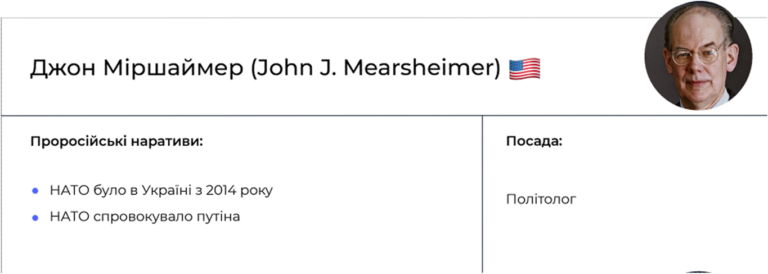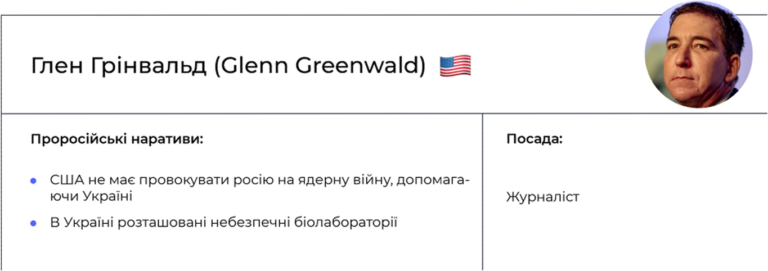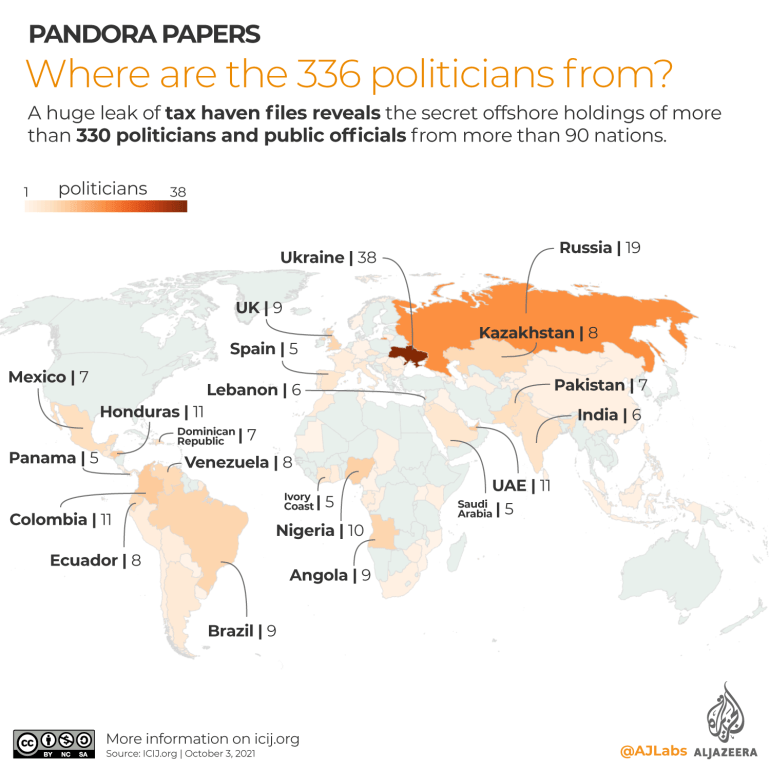Del Cap wrote:Как живет полуразрушенный Мариуполь – Картина дня – Коммерсантъ (kommersant.ru)
полуразрушенный
Eufemizam
 Re: Rat u Ukrajini
Re: Rat u UkrajiniDel Cap wrote:Как живет полуразрушенный Мариуполь – Картина дня – Коммерсантъ (kommersant.ru)
 Re: Rat u Ukrajini
Re: Rat u UkrajiniOne of those cases where the gut feeling turns out to be right. A poll in Austria found that most vaccinated Austrians believe Russia is responsible for the war in Ukraine, while the unvaccinated mostly blame the US and NATO. https://t.co/YSWEdGMo0v pic.twitter.com/vCw1E3iZ41
— Tadeusz Giczan (@TadeuszGiczan) July 25, 2022
 Re: Rat u Ukrajini
Re: Rat u Ukrajini
The Russian state-controlled energy company Gazprom has announced a drastic cut to gas deliveries through its main pipeline to Europe from Wednesday, prompting Ukrainian president Volodymyr Zelenskiy to accuse Moscow of waging a “gas war”.
The Russian gas export monopoly said it was halting the operation of one of the last two operating turbines due to the “technical condition of the engine”, cutting daily gas deliveries via the Nord Stream pipeline to 33m cubic metres a day – about 20% of the pipeline’s capacity.
 Re: Rat u Ukrajini
Re: Rat u Ukrajini Re: Rat u Ukrajini
Re: Rat u Ukrajini Re: Rat u Ukrajini
Re: Rat u Ukrajinihttps://www.nytimes.com/2022/07/25/world/europe/ukraine-kherson-russia-counterattack.html
Eyeing a City Captured by Russia, Ukraine Prepares an Ambitious Counterattack
With soldiers, artillery and subversives, Ukraine has been laying the groundwork to retake Kherson, which Russia has held for months. But a counterattack would require huge resources, and could come at a heavy toll.
Published July 25, 2022
KHERSON REGION BORDER, Ukraine — The road to Russian-occupied Kherson in southern Ukraine passes through a no man’s land of charred wheat fields and cratered villages. The tails of rockets stick out of asphalt and the boom of incoming and outgoing artillery ricochets off tidy, abandoned homes.
Along a jagged frontline, Ukrainian forces are preparing for what is one of the most ambitious and significant military actions of the war: retaking Kherson. The first city to fall to Russian forces, Kherson and the fertile lands that surround it are a key Russian beachhead, from which its military continuously launches attacks across a broad swath of Ukrainian territory. Regaining control could also help restore momentum to Ukraine, and give its troops a much-needed morale boost after months of vicious fighting.
“We want to liberate our territory and return it all to our control,” said Senior Lt. Sergei Savchenko, whose unit with Ukraine’s 28th Brigade is dug in along the Kherson region’s western border. “We’re ready. We have wanted this for a long time.”
Already, fighting on the western and northern borders of the region is intensifying, as Ukrainian forces — currently about 30 miles from the city at their closest point — lay the groundwork for a large offensive push. For a month, Ukrainian artillery and rocket forces have been softening up Russian positions, using an array of new, Western-supplied weapons like the High Mobility Artillery Rocket Systems, or HIMARS, provided by the United States.
The strikes, some captured on video, have taken out forward command centers and key ammunition depots, which erupt in glittery fireballs when struck, Ukrainian officials say. They claim that hundreds of Russian troops have been killed and that the attacks have disrupted Russia’s logistical infrastructure. Supply warehouses and command positions have been pushed back from the front lines, they say, making it harder to keep soldiers armed and fed. Their claims cannot all be independently verified.
“You could compare it to waves,” said a senior Ukrainian military official who spoke on condition of anonymity to discuss military planning. “Right now we’re making small waves and creating conditions to make bigger ones.”
Unlike in Ukraine’s eastern Donbas region, where a massive Russian force slowly captured a province in recent weeks, the Ukrainian military appears to have begun to turn the tide in the Kherson region, if haltingly.
After losing control over most of the region in the war’s first weeks, Ukrainian troops have now liberated 44 towns and villages along the border areas, about 15 percent of the territory, according to the region’s military governor, Dmytro Butrii. Ukraine’s top officials have given no clear timeline for retaking Kherson, but the president, Volodymyr Zelensky, has made clear it is a top priority.
“Our forces are moving into the region step by step,” Mr. Zelensky said this week.
Ukraine’s planned counteroffensive in the south has created debate among Western officials and some analysts about whether Ukraine was ready for such a big effort, or if it is the best use of resources when Russian advances have come mostly in the Donbas.
Still, Ukrainian officials and several Western intelligence officials said it was important that Ukraine try to launch a counterattack. They say that the Russian military is in a relatively weaker position, having expended weapons and personnel in their Donbas offensive. Richard Moore, the chief of the British foreign intelligence service, MI6, predicted that the Russians would be forced to take a pause, offering an opening to Ukrainian forces.
Any effort to retake significant territory would nevertheless be a huge undertaking. Russian forces have now occupied the Kherson region for nearly five months and have been largely unmolested in their efforts to harden military positions and prepare for an assault. They have installed new leaders in the city itself as well as in major towns and villages.
A counterattack would require a huge number of troops and many more offensive weapons systems than Ukraine has available at the moment, some Western and Ukrainian officials say. Ukraine is expending about 6,000 to 8,000 shells a day overall. If it were to begin an active attack on Kherson it would need three to four times as many.
Aleksei Reznikov, Ukraine’s defense minister, has spoken of the need to raise a million-man army to take back the lands Ukraine has lost in the war. The Kherson region is largely rural, but the city of Kherson is a sprawling metropolis straddling the Dnipro River. Taking it back could involve vicious urban fighting with enormous losses in soldiers and property.
“We look at Kherson like it’s the next Fallujah,” said Michael Maldonado, a 34-year-old former U.S. Marine from Kansas who joined the 28th Brigade. “It’s going to be a lot of crazy fighting.”
The Ukrainian Army will also have to consider the large number of civilians. The city has lost about a third of its pre-war population of about 300,000, but an all-out assault that involves shelling could put those who remain at great risk, something Ukrainian officials seem conscious of.
Last month, Iryna Vereshchuk, a deputy prime minister, urged residents of Kherson and the surrounding region to evacuate. “Please, go because our army will definitely de-occupy these lands,” she said. “Our will to do so is unwavering.”
In villages now controlled by Ukraine’s 28th Brigade along Kherson’s western border, only the foolhardy stay above ground for long. Black mushroom clouds hang on the horizon and artillery shells whiz back and forth across farm fields. This week, the brigade’s commander, Vitaly Gulyaev, was killed in a rocket attack.
“Every day, we fire at them and they respond to us, but they make no progress,” Lieutenant Savchenko said. “For now we’re holding this territory, but as soon as there is an order, as soon as we have a possibility to do so, we will move forward.”
Russian forces moved through the area at the start of the war, heading west along the Black Sea coast toward Ukraine’s crucial port city of Odesa. But they were stopped halfway. A fierce Ukrainian resistance around the town of Mykolaiv pushed the Russian troops back into the Kherson region, where they remain.
Most residents have fled the villages along the front. The few who stayed spend most of their time in bunkers or basements.
Larisa Maslii, 74, and her husband have lived in the cellar below their home since war erupted on Feb. 24. Ms. Maslii never leaves these days, though her husband dashes up to the house regularly to take care of the family pets: a dog, a cat and a hamster. They have outfitted the cellar with tents and LED lights and receive occasional visits from a Ukrainian military chaplain who looks after them.
“We’ve put our trust in God and in our bomb shelter,” she said.
“Send more weapons,” she added, “so we can kick them out.”
To help prepare the ground for an offensive, Ukraine’s military intelligence service has quietly been training a legion of subversives, sending them into occupied territory to carry out acts of sabotage and provide information about Russian troop locations. Officials installed by the occupying Russian authorities have been assassinated and their cars have been blown up in some cases.
At a rundown hotel not far from Odesa, a mother of four named Natalya seems like an unlikely warrior. She fled her farm in the area in April after Russian troops began arriving at her home, looking for subversive materials.
Though living in exile in another part of the country, she still tries to be of use resisting Russia. Her husband, who remained behind, calls her regularly with information about the latest Russian military movements in the region, she said.
“He tells me where they are positioned,” she said. “And I pass it on to our guys, the armed forces.”
Until recently, Natalya said, her husband had begun to lose heart. He could no longer hear the Ukrainian guns firing, she explained, and felt as if he had been abandoned. Then the guns started up again.
“Our guys began to shoot, and I could see, his morale had improved,” Natalya said, as her mother cried by her side, cursing the Russian military.
“We want to liberate our territory and return it all to our control,” said Senior Lt. Sergei Savchenko. “We’re ready. We have wanted this for a long time.”
 Re: Rat u Ukrajini
Re: Rat u UkrajiniВС РФ на Херсонском направлении перебросили в район Высокополья авиацию и артиллерию, из-за чего ситуация там "выровнялась", заявил Арестович, который ранее обещал, что там будет котёл.
"На Высокополье наши немножко не то сделали с моей точки зрения... Россияне перебросили туда артиллерию и авиацию, нанесли авиаудары, артиллерийские удары по нашей наступающей пехоте и там обстановка выровнялась", — сказал он.
Арестович добавил, что на Херсонское направление российские войска перебрасывают достаточно большое количество личного состава и техники — третьи сутки туда идут машины, техника и ПВО.
 Re: Rat u Ukrajini
Re: Rat u UkrajiniThe US manufacturer makes about 9000 HIMARS missiles per year. At the below expenditure rate of missiles, the entire annual US peacetime production would be spend in less than 2 month in Ukraine. https://t.co/WqoDB1mfrI
— Franz-Stefan Gady (@HoansSolo) July 26, 2022
 Re: Rat u Ukrajini
Re: Rat u Ukrajini Re: Rat u Ukrajini
Re: Rat u Ukrajini Re: Rat u Ukrajini
Re: Rat u UkrajiniSotir wrote:
Током агресије на СРЈ испаљено је око 3 хиљаде Противрадарских ракета. После почетног шока, ПВО је стекао искуства и прилагодио се.
 Re: Rat u Ukrajini
Re: Rat u Ukrajini— The Kyiv Independent (@KyivIndependent) July 26, 2022
Estonia to prepare proposals for EU to stop issuing visas to Russians.
Estonian FM Urmas Reinsalu said that Russian tourists are now traveling to Europe en masse, while Russia is killing children in Ukraine. "This is, no doubt, morally wrong," he said as quoted by the ERR.
 Re: Rat u Ukrajini
Re: Rat u UkrajiniFilipenko wrote:Lepo je videti ukrajinskog predsednika zabrinutog za pritisak u cevima gasovoda koji ide ispod baltickog mora i nosi gas u centralnu evropu.
Jos lepse je videti da se navodi guardian kao izvor te informacija, koja je valjda izuzetno znacajna, kao da zelenko ne daje takve izjave 10 puta dnevno.
Do veceras ce biti da je ukrajina zatrazila da se uhapsi glen grinvold, i valjda ce navodjenje nekog "uglednog" times magazina (londonski, njujorski, losandjeleski...) posluziti da to dozivimo kao nesto normalno i prihvatljivo.




 Re: Rat u Ukrajini
Re: Rat u Ukrajini“I argue that it is clear from the available evidence that Russia invaded Ukraine because the United States and its European allies were determined to make Ukraine a Western bulwark on Russia’s border, which Moscow saw as an existential threat. Ukrainians of all persuasions reject my argument and instead blame Vladimir Putin, who is said to have been bent on conquering Ukraine and making it part of a greater Russia.
“But there is no evidence in the public record to support that claim, which creates real problems for both Kyiv and the West. So how do they deal with me? The answer of course is to label me a Russian propagandist, which I am not.”
 Re: Rat u Ukrajini
Re: Rat u Ukrajini Re: Rat u Ukrajini
Re: Rat u Ukrajini Re: Rat u Ukrajini
Re: Rat u Ukrajini Re: Rat u Ukrajini
Re: Rat u Ukrajini Re: Rat u Ukrajini
Re: Rat u Ukrajini Re: Rat u Ukrajini
Re: Rat u UkrajiniCousin Billy wrote:a ceo citat ima vajb Kaniđine odbrane od optužbi za narkomaniju.

 Re: Rat u Ukrajini
Re: Rat u UkrajiniPandora Papers: Ukraine leader seeks to justify offshore accounts
Ukrainian President Volodymyr Zelenskyy’s office has sought to justify his use of offshore companies as protecting him against pro-Russian forces, following leaked revelations in the Pandora Papers.

 Re: Rat u Ukrajini
Re: Rat u Ukrajini Re: Rat u Ukrajini
Re: Rat u Ukrajini